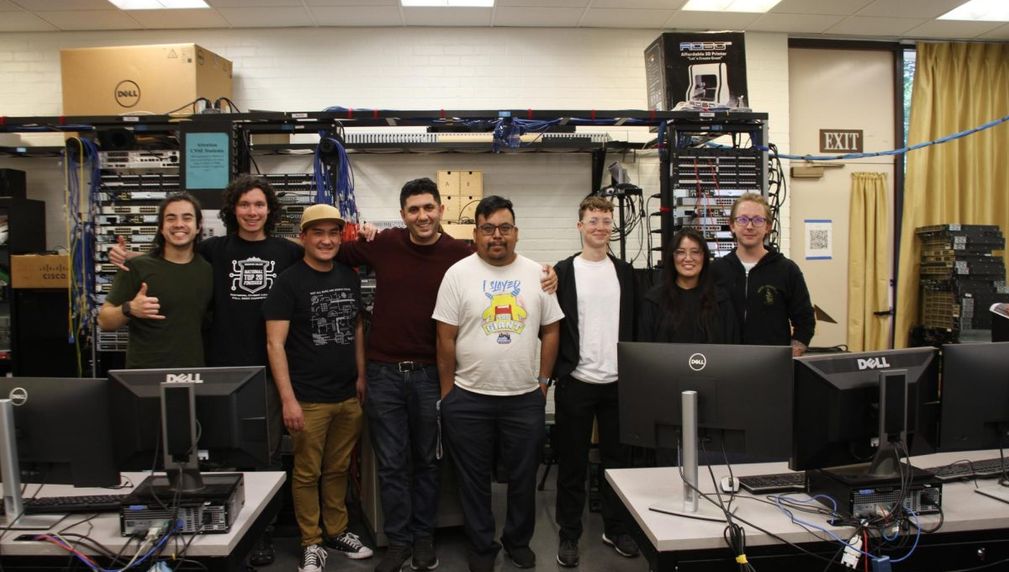Cyber Futures: Youth Workforce Pathway
Cyber Futures is a visionary workforce pathway connecting high school youth—especially Opportunity and NEET youth ages 16–24—with early access to cybersecurity education and career skills. Through remote participation in Moorpark College's Cybersecurity Program, students will build technical knowledge, job readiness, and financial independence. This after-school initiative bridges the digital divide and opens doors to STEAM careers where diverse talent is urgently needed.

What is the primary issue area that your application will impact?
Youth economic advancement
In which areas of Los Angeles will you be directly working?
South LA San Gabriel Valley Gateway Cities
In what stage of innovation is this project, program, or initiative?
Pilot or new project, program, or initiative (testing or implementing a new idea)
What is your understanding of the issue that you are seeking to address?
Too many young people in Los Angeles—particularly Opportunity Youth ages 16–24—face limited access to living-wage careers, especially in high-growth fields like cybersecurity. These youth, often disconnected from education and employment, lack both technical training and exposure to viable career paths. Meanwhile, the demand for cybersecurity professionals continues to rise, creating a growing workforce gap. Without early intervention and equitable access to industry-relevant programs, these young people risk being left behind in the digital economy. The Cyber Futures program addresses this disconnect by bridging education, job training, and youth-centered support to ensure LA’s future workforce includes its most underserved youth.
Describe the project, program, or initiative this grant will support to address the issue.
Cyber Futures is an innovative after-school and career-readiness initiative from Ultimate Dreams, Inc. that empowers high school youth—particularly Opportunity Youth and NEET youth ages 16–24—to pursue careers in cybersecurity. Through remote access to Moorpark College's Cyber Security Program, students will explore core concepts in cyber ethics, network security, and digital defense while building technical skills aligned with real-world industry certifications. Hosted in a safe, youth-centered space in Los Angeles, this pilot provides structured, guided time for coursework, mentorship, and peer collaboration. Participants will engage in live online classes, receive hands-on instruction, and build job-readiness skills like professional communication and critical thinking. Executive Director Willie Glasper, who completed the Moorpark College Cyber Security program himself, envisioned this project after experiencing its personal impact. This cross-county partnership brings a high-quality, proven career pathway from San Bernardino to youth in LA County—bridging geographic gaps and expanding access to STEAM education. Cyber Futures ensures students are not only job-ready, but confidence-ready for the workforce of tomorrow.
Describe how Los Angeles County will be different if your work is successful.
Cyber Futures success will equip underserved youth with the tools to thrive in the digital economy—starting in high school. Young people who were once disconnected from opportunity will gain marketable tech skills, mentorship, and a sense of agency in their future. LA County will benefit from a more inclusive, homegrown talent pipeline in cybersecurity—one built through collaboration with Moorpark College's successful program and rooted in real-life experience. Over time, we aim to partner with local organizations such as UNITE-LA and the Best Buy Teen Tech Centers to expand access and deepen impact. Additionally, we plan to establish scholarships in collaboration with entities like Codesmith to support students pursuing further certifications. As students complete coursework, earn certifications, and begin careers, we’ll see a shift in what’s possible for Opportunity Youth. Long-term, Cyber Futures can grow into a scalable, cross-regional model for economic mobility and tech equity.
Approximately how many people will be impacted by this project, program, or initiative?
Direct Impact: 40
Indirect Impact: 200